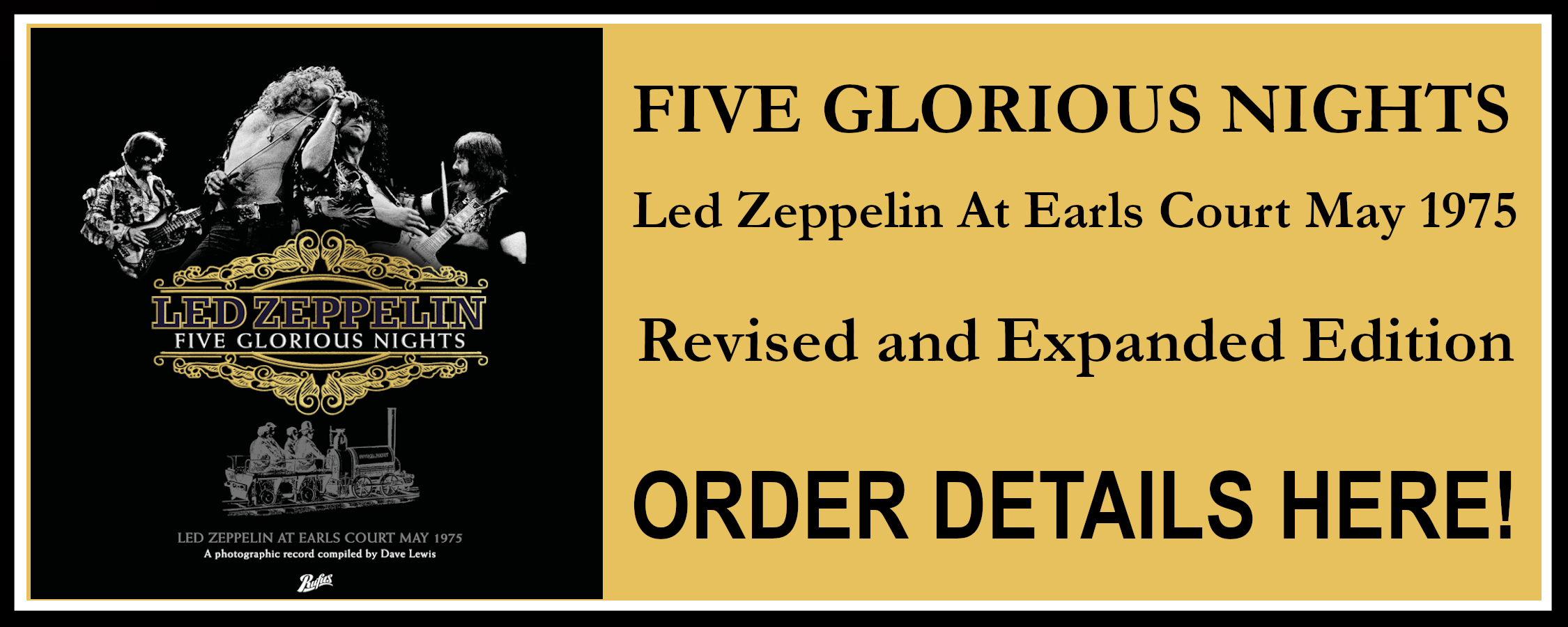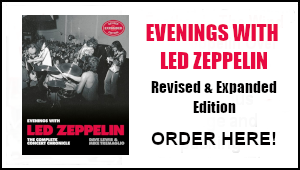New Orleans Jazz & Heritage Festival, New Orleans, LA
Set-List:
Rich Woman, Leave My Woman Alone, Black Dog, Sister Rosetta Goes Before Us, Through The Morning, Through The Night, Fortune Teller, Black Country Woman, Hey Hey What Can I Do, The Rat Age, Bon Temps Rouler, Trampled Rose, Green Pastures, Down In The River To Pray, Nothin’, Killing The Blues, Let Your Lost Be Your Lesson, When The Levee Breaks, The Battle of Evermore, Please Read The Letter, Gone Gone Gone (Done Moved On)
Encores: Stick With Me Baby, One Woman Man, Your Long Journey.
Reviews:
From USA today: By Edna Gundersen
NEW ORLEANS – The New Orleans Jazz & Heritage Festival started Friday with a jam-packed day of wildly eclectic sounds, ranging from the country-Cajun strains of female sextet The Figs to the percolating island rhythms of Rudy’s Caribbean Funk.
But at 3:15 p.m., it seemed that everyone had congregated at one stage on the sprawling Fair Grounds Race Course for an hour-long set by Robert Plant and Alison Krauss.
The oddly harmonious couple, a bluegrass fiddler and heavy metal pioneer, set the early high bar for the rest of Jazz Fest’s eclectic bill. Against a suitable backdrop of cool breezes and darkening skies, the duo dipped into their acclaimed Raising Sand album, playing Appalachian-kissed versions of Rich Woman and Killing the Blues. They also sampled their respective catalogs, with a captivating dip into the Led Zeppelin realm that turned Black Dog into a steamy, haunted ballad. The duo’s band included Sand producer T-Bone Burnett on guitar.
On stage, Plant dubbed the pairing “new, fantastic and stimulating” and talked about an early frustration with British pop that led to his fascination with America’s urban music, especially the sensual, earthy sounds that flowed from New Orleans. He beamed as he mentioned meeting singer Aaron Neville backstage and “the magnificent” Allen Toussaint, whose Fortune Teller (“a song I played when I was 14”) was a raucous highlight.
Dapper in a tie and sport coat, Toussaint was grinning at the side of the stage during the performance.
“It was wonderful,” the storied New Orleans musician/songwriter said afterward. “It was so tasteful the way they took it in a different direction. I love their rendition on the album. And it’s in good company there.”
Review of April 25, 2008 New Orleans Jazz Fest
originally appeared in The Times-Picayune
by Keith Spera
The early contender for show to beat at the 2008 Jazzfest? The bewitching Friday afternoon set by Alison Krauss, Robert Plant and their all-star Americana band.
I wasn’t sure how the intimate arrangements from their “Raising Sand” album would translate in the wide-open space at the Acura Stage. They translated just fine, especially with a brooding gray sky framing the whole affair.
The bluegrass sprite and the grizzled rocker are, at first glance, an unlikely duo. But their voices and sensibilities are simpatico. Led Zeppelin shares a common Celtic root with Appalachian music. That common source was especially apparent as they veered off on “The Battle of Evermore.” Plant’s wail stood tall out front as Krauss swooped in like a banshee over a bed of ringing mandolins. Power stuff.
Plant was reportedly under the weather on Thursday; he and Krauss cancelled a video shoot slated for One Eyed Jacks in the French Quarter. But he showed no ill effects onstage. He wore a long-sleeve black shirt and brown slacks, his goatee and mane of curls flecked by grey.
A dedicated student of roots music in general and New Orleans music in particular, he gave a shout-out to Aaron Neville, Lafayette guitarist C.C. Adcock – “he’s a piece of work, but I like him” -and a beaming Allen Toussaint, who watched from the Acura Stage guest area. Plant and Krauss then delivered a fetching “Fortune Teller,” a classic Toussaint composition that appears on “Raising Sand.”
They had eased into the set with “Rich Woman,” another cut from “Raising Sand.” The early going went well enough to elicit a “hot diggety!” from Plant. They harmonized beautifully on “Killing the Blues.” Elsewhere, Plant seemed to chafe a bit at the confines of the chosen genre; a jagged Buddy Miller guitar solo added bite.
Plant did not ignore his substantial history. The Zeppelin romp “Black Dog” was spun into a study in banjo, with whispered harmonies and a violin beaming in from some spooky pocket of Appalachia. The acoustic “Black Country Woman” came out much closer to the original; a banjo dominated until the violin kicked in. Plant grasped his microphone stand and leaned into. “Oh, do you get it?’ he said, pleased with a big response from the crowd.
With the Mississippi River at flood stage, flecks of rain falling from the sky, and New Orleans’ recent history, “When the Levee Breaks” could not have asked for a more dramatic setting. Plant and Krauss absolutely tore into it against swooping mandolins. She pushed her voice to its limits to keep pace with his wail. “Soul sister Alison Krauss!” Plant exclaimed.
Yet another peak occurred during an even quieter moment. Krauss gave her haunting, sumptuous voice full flight and sang “Down to the River To Pray,” from her Union Station songbook. Backing her, Plant and two band mates harmonized on a shared a microphone. The a cappella arrangement induced goose bumps even where I stood, far back on the field.
Plant and Krauss are in the early days of a tour slated to stretch through the summer. He described his adventure with Krauss as “new, fantastic and stimulating.” With that, they added their names to the Jazz fest Hall of Fame.
Poor Sheryl Crow – she had to follow them.















Leave your response!